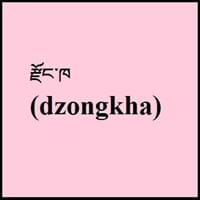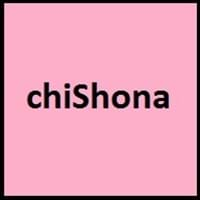Dzongkha and Shona
Countries
Bhutan
Zimbabwe
National Language
Bhutan
Botswana, Mozambique, Zimbabwe
Second Language
India
Not spoken in any of the countries
Speaking Continents
Asia
Africa
Minority Language
India
Not spoken in any of the countries
Regulated By
Dzongkha Development Commission
Not Available
Interesting Facts
- Standard romanization of the Dzongkha language is Roman Dzongkha.
- Shona language is tonal language.
- The African people in Zimbabwe is made of 10 ethnic groups, each speaking a different languages, shona is spoken by 60 percent of population.
Similar To
Sikkimese Language
Kalanga and Nambya Language
Derived From
Tibetan Language
Not Available
Alphabets in
Dzongkha-Alphabets.jpg#200
Shona-Alphabets.jpg#200
Scripts
Dzongkha Braille, Tibetan Braille
Latin
Writing Direction
Not Available
Not Available
Language Levels
Not Available
Hello
Kuzoozangpo La
Mhoro
Thank You
Kaadinchhey La
Waita zvako
How Are You?
Ga Day Bay Zhu Yoe Ga ?
Wakadini zvako?
Good Night
lek shom ay zim
Urare zvakanaka
Good Evening
Not Available
Manheru
Good Afternoon
Not Available
Masikati
Good Morning
Not Available
Mangwanani
Please
Not Available
Ndinokumbirawo
Sorry
Tsip maza
Ndineurombo
I Love You
Nga cheu lu ga
Ndinokuda
Excuse Me
Tsip maza
Pamusoro
Where They Speak
Bhutan
Zimbabwe
How Many People Speak
Not Available
Where They Speak
Bhutan
southern Zimbabwe
How Many People Speak
Not Available
Where They Speak
Bhutan
central Zimbabwe, Mashonaland
Total No. Of Dialects
Not Available
Speaking Population
Not Available
Second Language Speakers
Not Available
Native Name
རྫོང་ཁ (dzongkha)
Not Available
Alternative Names
Bhotia of Bhutan, Bhotia of Dukpa, Bhutanese, Drukha, Drukke, Dukpa, Jonkha, Rdzongkha, Zongkhar
Chishona, “Swina” (pej.), Zezuru
French Name
dzongkha
shona
German Name
Dzongkha
Schona-Sprache
Pronunciation
Not available
Not Available
Ethnicity
Ngalop people
Not Available
Origin
17th Century
20th century
Language Family
Sino-Tibetan Family
Niger-Congo Family
Subgroup
Not Available
Benue-Congo
Branch
Tibeto-Burman
Bantu
Early Forms
No early forms
Not Available
Standard Forms
Dzongkha
Not Available
Language Position
Not Available
Signed Forms
Not Available
Not Available
Scope
Individual
Individual
ISO 639 6
Not Available
Not Available
Glottocode
nucl1307
core1255
Linguasphere
No data Available
99-AUT-a
Language Type
Living
Living
Language Linguistic Typology
Not Available
Not Available
Language Morphological Typology
Not Available
Not Available
All Dzongkha and Shona Dialects
Most languages have dialects where each dialect differ from other dialect with respect to grammar and vocabulary. Here you will get to know all Dzongkha and Shona dialects. Various dialects of Dzongkha and Shona language differ in their pronunciations and words. Dialects of Dzongkha are spoken in different Dzongkha Speaking Countries whereas Shona Dialects are spoken in different Shona speaking countries. Also the number of people speaking Dzongkha vs Shona Dialects varies from few thousands to many millions. Some of the Dzongkha dialects include: Laya, Lunana. Shona dialects include: Hwesa , Karanga. Also learn about dialects in South American Languages and North American Languages.
Dzongkha and Shona Speaking population
Dzongkha and Shona speaking population is one of the factors based on which Dzongkha and Shona languages can be compared. The total count of Dzongkha and Shona Speaking population in percentage is also given. The percentage of people speaking Dzongkha language is Not Available whereas the percentage of people speaking Shona language is 0.13 %. When we compare the speaking population of any two languages we get to know which of two languages is more popular. Find more details about how many people speak Dzongkha and Shona on Dzongkha vs Shona where you will get native speakers, speaking population in percentage and native names.
Dzongkha and Shona Language Codes
Dzongkha and Shona language codes are used in those applications where using language names are tedious. Dzongkha and Shona Language Codes include all the international language codes, glottocodes and linguasphere.





